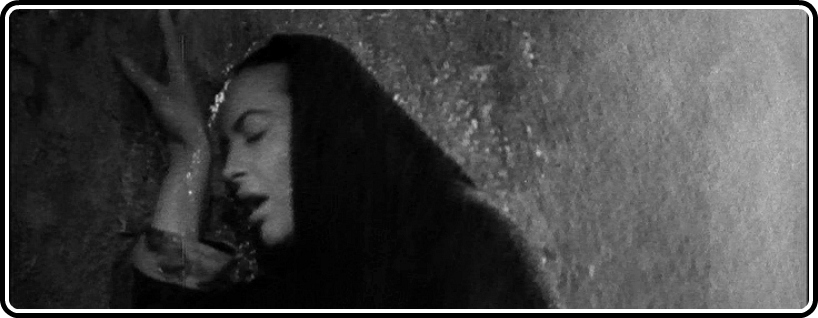
For reasons not entirely clear to me, when film scholars discuss the cinematic movements of various nations, there’s never any mention of an Italian New Wave. Of course, most of us are familiar with the original nouvelle vague that started in France in the late 1950s, and from that point forward just about ever country with a film scene that went through some kind of upheaval triggered by cultural shifts of the 1960s got their own “new wave.” Wikipedia has New Wave (or related) entries for Japan, Czechoslovakia, Iran, Brazil, Australia, Great Britain, Romania, Portugal and Taiwan, but not one for Italy. Why is that? I suppose it could be due to the fact that Italian Neorealism preceded and heavily influenced the nouvelle vague, and we can only allocate one new/neo revolution per country. But whatever the explanation may be, it seems to me that Italian cinema was going through its own mini-renaissance in the early 1960s as new directors emerged with a distinctive voice and vision that profoundly changed the film-making landscape in that nation. Among them was Francesco Rosi, whose 1962 breakthrough Salvatore Giuliano has been the subject of my attention over the past week as I prepare to review it on my Criterion Reflections blog. Rosi’s emphasis on high-stakes political machinations and the critical effect they have on individual human lives paved the way for powerful films like Pontecorvo’s The Battle of Algiers and Costa-Gavras’ Z over the next several years. As a way of providing some context for Rosi’s risky emphasis on social controversy and corruption in high places, I figured the time was ripe for me to revisit Eclipse Series 27: Raffaello Matarazzo’s Runaway Melodramas. These films, shot in the decade prior to Rosi’s emergence, come from almost the opposite end of the ideological spectrum in portraying the concerns and anxieties of respectable Italian working-class folks, who flocked to theaters to enjoy the simple pleasures of tear-jerking potboilers with a generous overlay of piety and sentimentality. Think of them as a rough equivalent to the splendidly emotive masterworks that Douglas Sirk directed around the same time – Magnificent Obsession, All That Heaven Allows, Written on the Wind – only shot in black and white, in a grittier, more proletarian setting than Sirk’s preferred milieu of upper middle-class American suburbia.
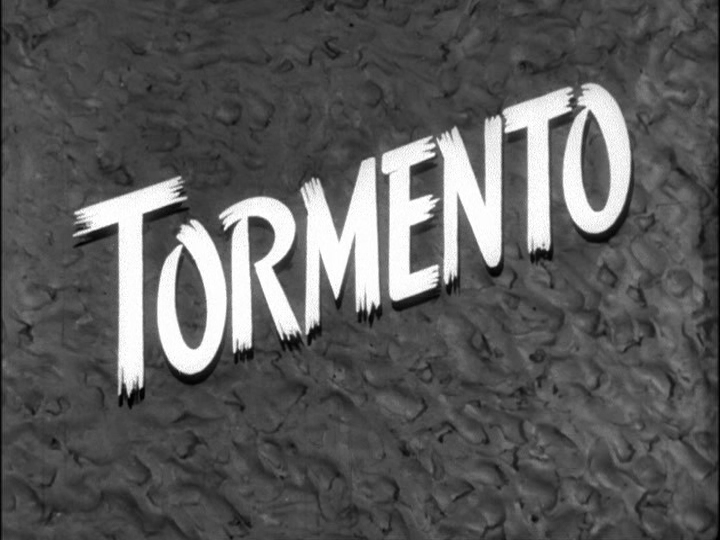
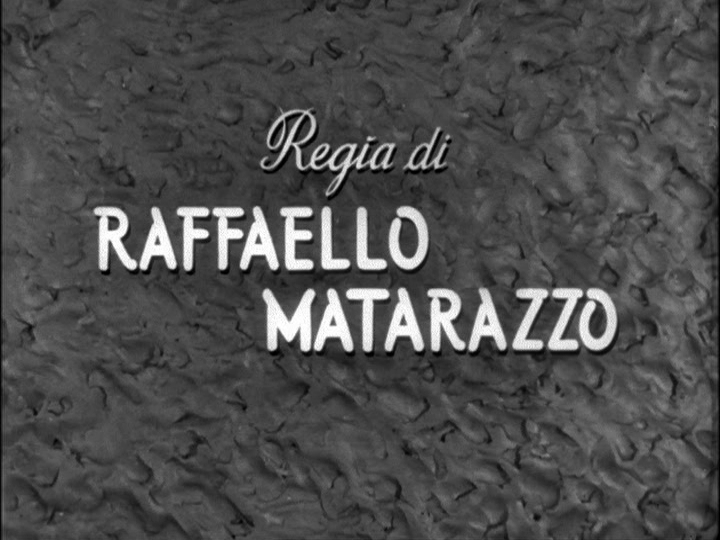
I offered this review of the whole box set just about a year ago when it was first released, and this week’s viewing of Tormento was my first return to Matarazzo’s work since then. I chose the film based on a fond recollection of its rapid fire compilation of agonizing dilemmas that lovers and protagonists Anna Ferrari and Carlo Guarnieri have to navigate between the moment they first declare their love for each other and the film’s obligatory but enjoyable “love conquers all” conclusion. Even though it’s not the oldest film in the set, it’s the one I’d suggest to friends to see how Matarazzo’s exploration of the weepy soap opera genre aligns with their own tastes. Little did I suspect when I first put the DVD on that I would spot a credit for Aiuto regista (assistant director) to one Franco Rosi. A quick check-in with IMDb confirmed that, sure enough, Tormento was one of Francesco Rosi’s early gigs in the Italian film industry, though I figure that he featured a similar assignment on Luchino Visconti’s 1948 neorealist classic La Terra Trema more prominently on his résumé.


Anyway, all that Italian cinema trivia quickly becomes of merely academic interest once we enter the turbulent whirlwind of events that threatens to spoil the future Anna and Carlo dare to envision for themselves. Tormento begins with unmistakable fairy-tale notes as Anna kneels at the feet of her step-mother Matilde, helping the cranky old broad fit into her evening gown as she prepares to go to a musical performance with Anna’s father Gaetano. Anna of course has to stay home for the evening, and there are no obnoxious step-sisters along to complicate the plot, but it’s immediately clear from Matilde’s cruel condescension and Gaetano’s flustered effort to balance the tensions between his wife and daughter that Anna’s home life is a joyless burden. Once the parents are gone, her face lights up when she receives a surprising but welcome call from her boyfriend. He’s eager to share some big news with her – he expects to come into some money soon, enough to give him the financial security needed to ask for Anna’s hand in marriage. Though Anna is supposed to stay home, she agrees to step out briefly to meet up with her sweetheart.

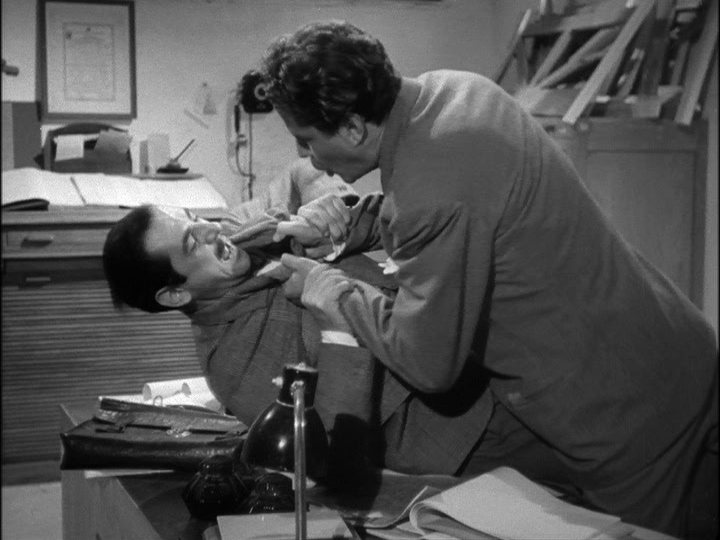
But what Anna thought would be a safe and quick (not to mention chaste) rendez-vous with her beau quickly turns into a fiasco. Her parents return home earlier than expected, and when Anna and Carlo show up at the front door, Matilde immediately assumes the worst. She hardly minces her words, even with Carlo standing right there, in assuming Anna’s slutty intention to sneak her boyfriend into the house “as she has so often before,” verbally slapping and humiliating her young rival for Gaetano’s affection, though none of her accusations have any truth to them. Provoked by Matilde’s rudeness, Carlo rashly convinces Anna to elope with him right then and there, and in a flash, the young couple is off to Rome to begin their life together, though yet without benefit of the proper matrimonial arrangements.
This early breakdown in communication and hasty jumping to conclusions sets the tone for just about everything else that happens in Tormento as one innocent, well-intentioned deed after another becomes subject to the most cynical interpretation of suspicious bystanders and authority figures. Soon enough, Carlo finds that the business arrangement he was counting on to fund the set-up of their new household has fallen through due to the treachery of Rossi, his trusted partner. Though Carlo’s not a violent man nor one looking for trouble, Rossi’s betrayal and the collapse of his prospects push him to the snapping point. Their dispute leads to a squabble witnessed by co-workers, which sets him up as the prime suspect when…

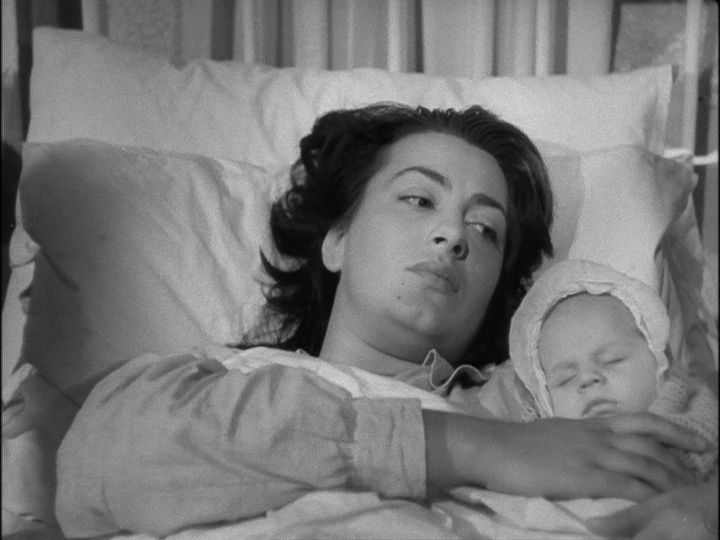
… Rossi’s beaten corpse shows up as front page news and an item of interest on the local police blotter. The situation goes from bad to worse as Carlo is arrested and charged with murder, hauled off to jail and found guilty of a crime he swears he didn’t commit. And to add another agonizing twist, Anna finds herself pregnant, estranged from her family, unmarried, with the baby’s father now serving a 20-year prison sentence. Socially, she’s an object of scorn and disgrace through no real fault of her own.

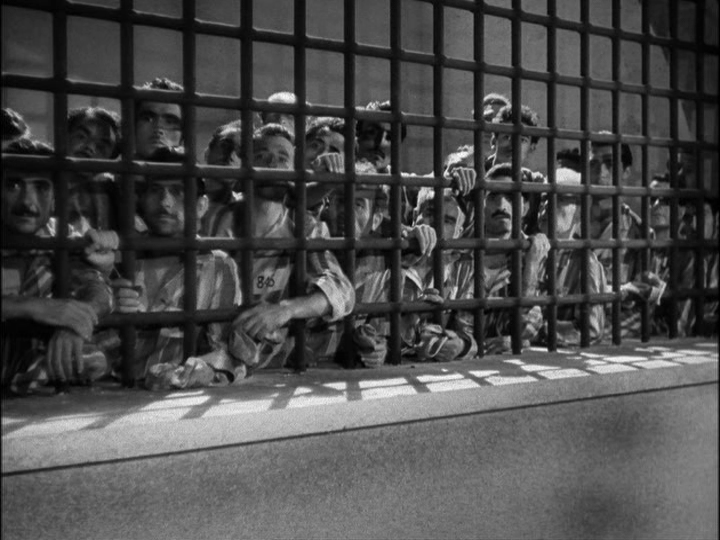
Though the odds of their marriage working out seem absurdly slim, Carlo and Anna are driven by a pure love and commitment to each other that defies common sense. He wants to make an honest woman out of her, and she wants him to know that even in the miserable solitude of his prison cell, he’s not completely alone since there’s a woman out there who will remain forever faithful to him. So they stage a jailhouse wedding, striking an oddly amusing balance of sincere solemnity and schmaltzy theatrical flourishes that easily could have been played more broadly for cheap laughs. Though it’s impossible to overlook the campy potentials of Tormento and the others in this set, what allows them to work as impressive cultural artifacts was Matarazzo’s obvious sensitivity to the genuine hardships and disappointments experienced by his contemporary audience that made these “runaway melodramas” so engrossing and relatable in their day.
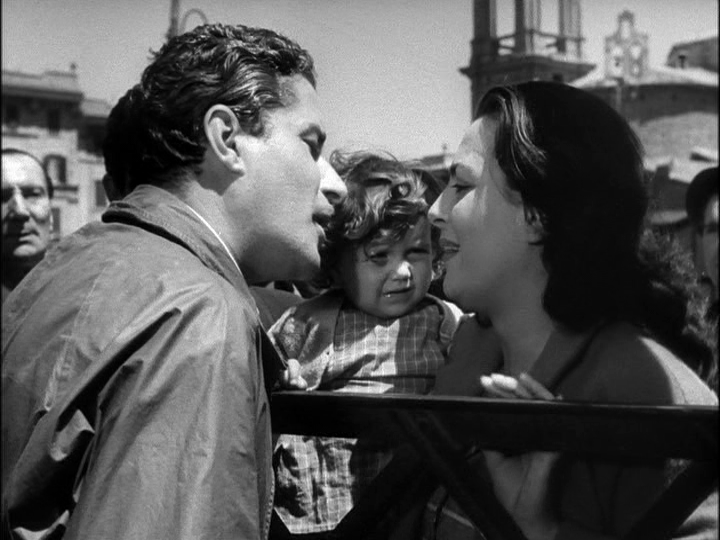
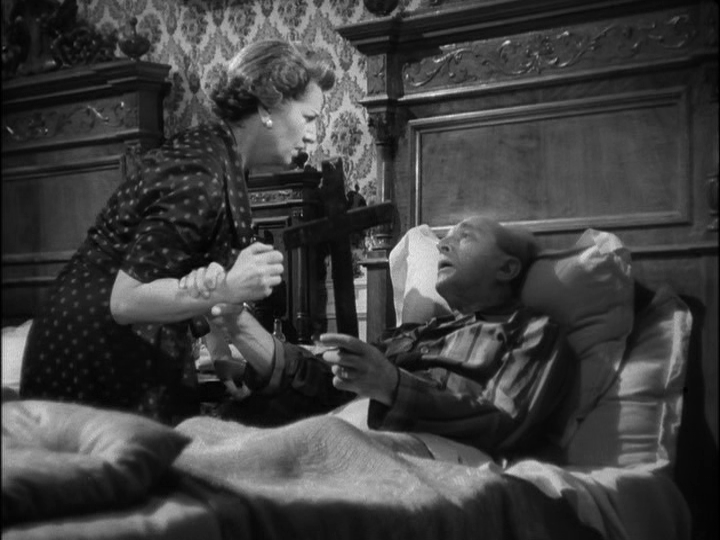
Matarazzo was hardly subtle in exploiting the traditional loyalties and pious aspirations of his viewers, following a fine tradition of Italian cinema in using the most adorably pitiful children one could find to play on our emotions (see Vittorio de Sica’s The Children Are Watching Us for a prime, influential example.) Adding to our vicarious agony as Anna and her daughter Ninuccia are forced to scrape by while their husband and father remains hopelessly incarcerated is the knowledge of their enduring virtue and innocence of all wrong-doing, despite the muttered skepticism and gossip that swirl around them. And when the elderly, frail Gaetano finally has his moment of epiphany in realizing just how malignant his wife had become in obstructing his relationship with Anna, the shock of discovery is more than he can bear. It leads to a brief but deliriously feverish death-bed scene that contrasts quite dynamically with Roberto Rossellini’s impressively reverential reconstruction of Blaise Pascal‘s last moments on earth.


But the real key to enjoying these films is held, quite capably, by Yvonne Sanson, the actor who teams up with her co-star Amadeo Nazzari in the other three offerings in this box. Their performance in 1949’s Chains made them an instant sensation in Italy, and they became in effect, a forerunner of the popular Jane Wyman/Rock Hudson pairing that Douglas Sirk used so effectively several years later in the films I mentioned above. Personally, while there’s nothing particularly lacking in Nazzari’s turns – he’s effective, serviceable-plus – it’s Sanson’s charisma that compels our interest. Her beauty shines brightest as she pours herself into the full range of mood swings that her characters endure, flashing her eyes and stoically resisting her retaliatory urges at each successive offense to her honor. She has that earnest desire to do what’s right, despite the opportunities and advantages she could easily secure if she compromised her principles just a bit.
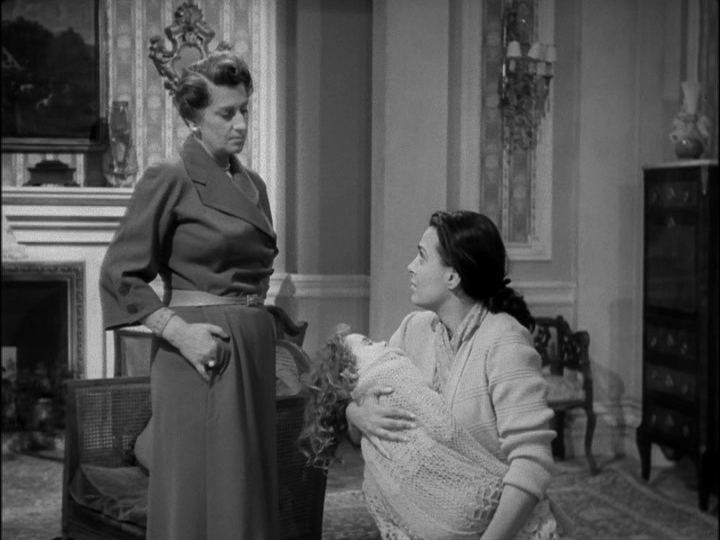
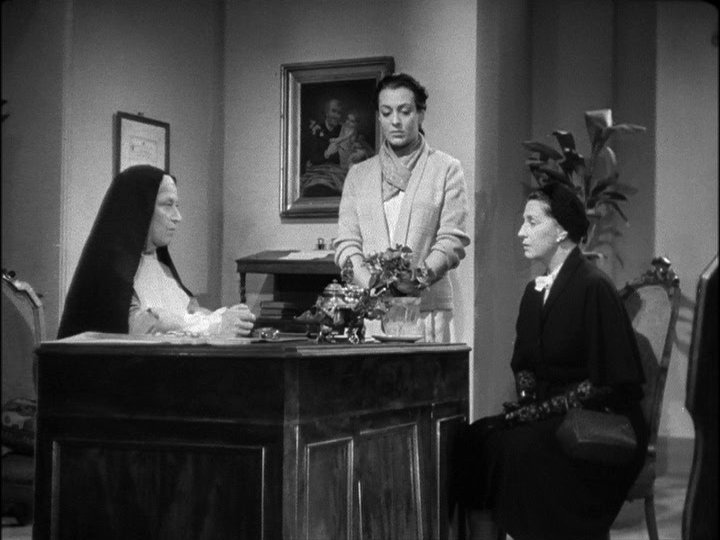
But despite her noble intentions and unshakable integrity, nothing ever seems to go right for poor Anna. There doesn’t seem to be a clear path toward economic self-sufficiency for an attractive but virtuous young woman with a daughter to raise and no husband to provide for her. No matter how determined she is to maintain her dignity and uphold her vows, it’s of no immediate benefit, as circumstances force her to accept new levels of self-sacrifice for the sake of her daughter. Matilde’s icy wrath knows no limit of indecency as she forces Anna to take vows of religious penance in exchange for a safe home for her daughter, setting up a new clash of morals, and perhaps poking at the conscience of viewers who might find themselves on one side or the other of the kind of scandal-mongering that was routinely directed at women who wound up in predicaments so similar to Anna’s. To the extent that a film like de Sica’s Bicycle Thieves could be said to offer a pointed critique of Italy’s economic and political injustices of that time, I think it’s only fair to point out that a film like Tormento was probably just as capable of raising awareness of the prevailing sexist bias that limited women’s options, if the audience and critics gave the subject more than a passing thought.

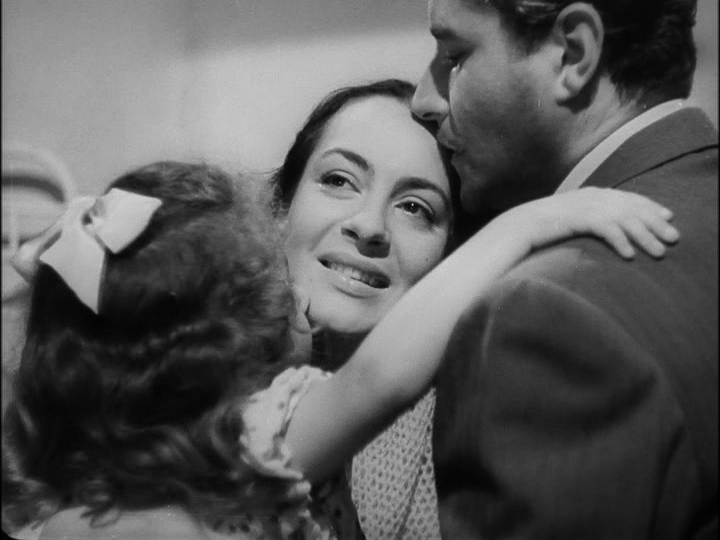
Just when Tormento’s litany of perpetual crisis teeters on the verge of an unsustainable frenzy (Ninuccia is struck with a near-fatal fever, mother and daughter endure heart-rending separations, Anna suffers under the tyrannical discipline of Mother Celeste, Carlo frets in his cell after hearing his bunkmate scoff at the notion of his wife’s ongoing faithfulness, a botched runaway from the convent leads to Anna collapsing like a wretch on a dark and stormy night) – all the tensions are outrageously dismissed with the invocation of a handily contrived deus ex machina that’s either humorously disarming or perhaps a bit alienating to those who hate such tidy resolutions. I won’t complain, since it sets us up for a satisfying emotional payoff at the end of it all, with Matilde, Carlo, Ninuccia and (most blessedly) Anna each getting their due, at least for the moment. But life being what it is, after the camera stops rolling, undoubtedly the Tormento will never really end.


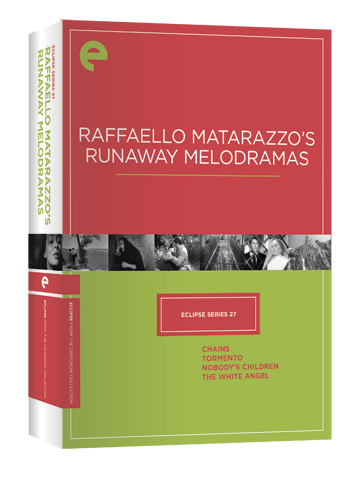
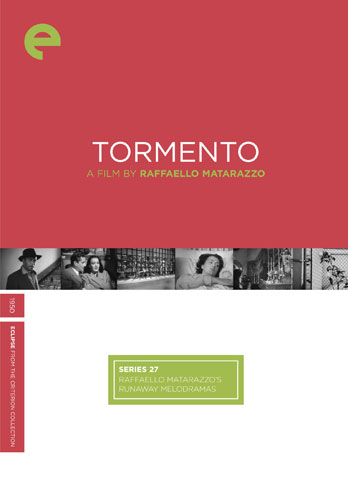

![Bergman Island (The Criterion Collection) [Blu-ray]](https://criterioncast.com/wp-content/uploads/2022/11/bergman-island-the-criterion-collection-blu-ray-400x496.jpg)
![This Is Not a Burial, It’s a Resurrection (The Criterion Collection) [Blu-ray]](https://criterioncast.com/wp-content/uploads/2022/11/this-is-not-a-burial-its-a-resurrection-the-criterion-collection-blu-ray-400x496.jpg)
![Lars von Trier's Europe Trilogy (The Criterion Collection) [The Element of Crime/Epidemic/Europa] [Blu-ray]](https://criterioncast.com/wp-content/uploads/2022/11/lars-von-triers-europe-trilogy-the-criterion-collection-the-element-of-400x496.jpg)
![Imitation of Life (The Criterion Collection) [Blu-ray]](https://criterioncast.com/wp-content/uploads/2022/11/imitation-of-life-the-criterion-collection-blu-ray-400x496.jpg)
![The Adventures of Baron Munchausen (The Criterion Collection) [4K UHD]](https://criterioncast.com/wp-content/uploads/2022/11/the-adventures-of-baron-munchausen-the-criterion-collection-4k-uhd-400x496.jpg)
![Cooley High [Criterion Collection] [Blu-ray] [1975]](https://criterioncast.com/wp-content/uploads/2022/11/cooley-high-criterion-collection-blu-ray-1975-400x496.jpg)